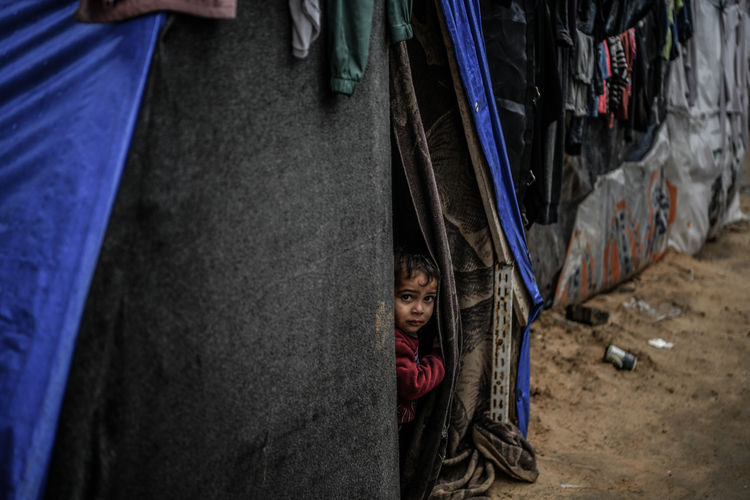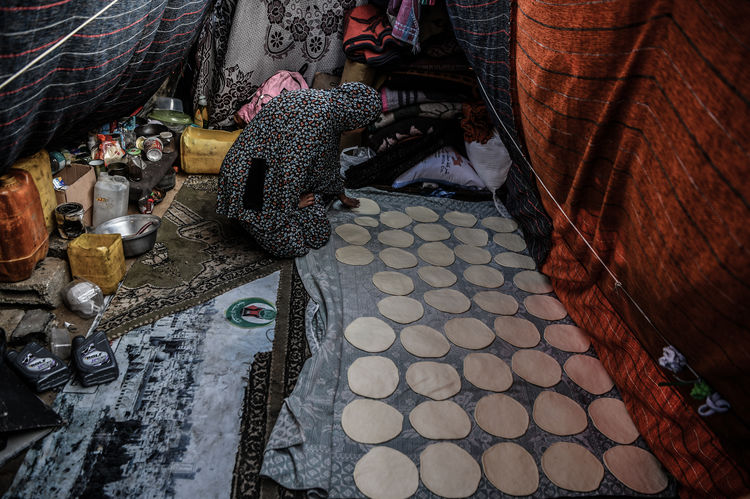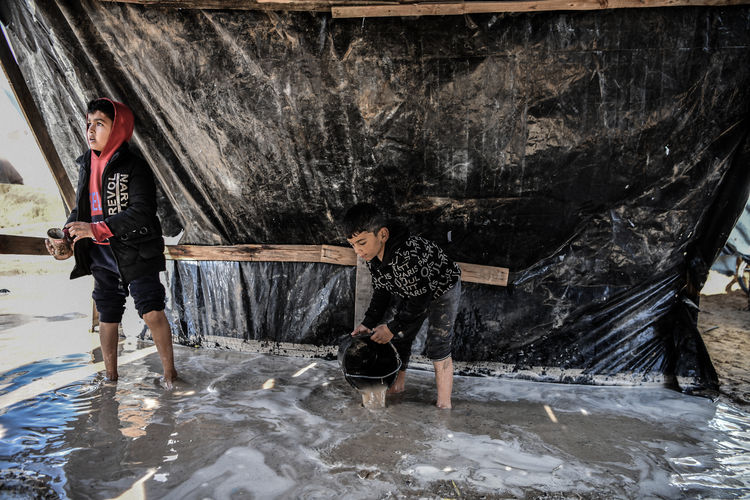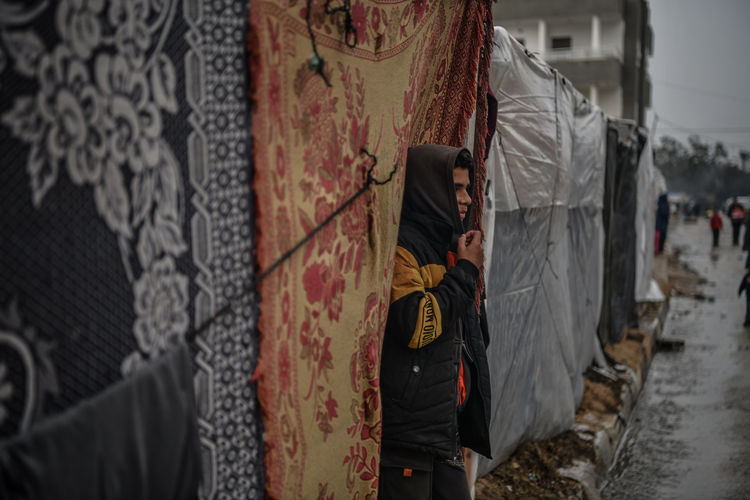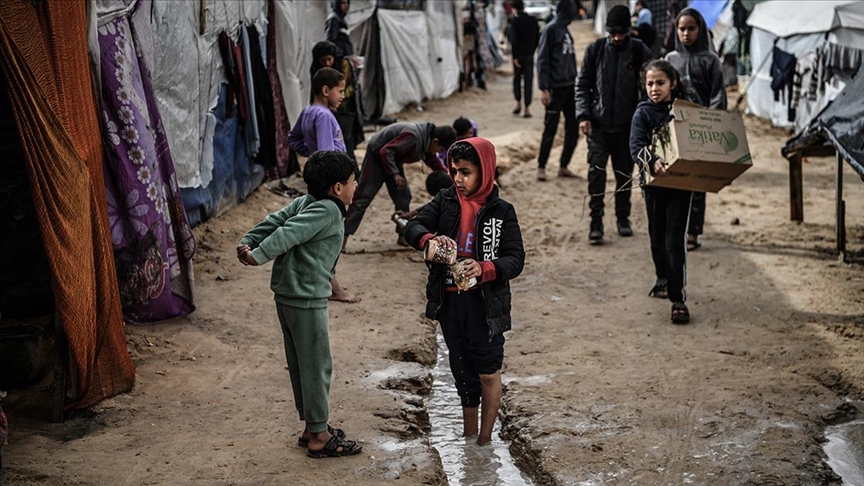
There is a "food crisis" in Rafah, where people displaced by Israeli attacks are accumulating.
There is a "food crisis" in Rafah, where people displaced by Israeli attacks are accumulating.
There is a "serious food crisis" in the southern city of Rafah, where hundreds of thousands of people from different parts of the Gaza Strip have taken refuge due to attacks carried out by Israel for 4 months.
Gaza
The Gaza Strip, which has been under blockade for many years, has experienced major problems with food supplies after Israel closed the Kerem Abu Salim trade checkpoint for food supplies since the beginning of the terrorist attacks on October 7.
According to the United Nations Relief and Works Agency for Palestine Refugees in the Near East (UNRWA), aid entering the Gaza Strip does not meet even 7-8 percent of the needs of the population.
Palestinians who need a bowl of soup emphasize that there are two main reasons why they cannot meet their food needs: hunger and lack of money.
Palestinians who were forced to migrate and whose homes were destroyed in the attacks need free canteens because they do not have the necessary materials for cooking.
The mayor of Rafah said earlier that Rafah, the southernmost city in Gaza, has hosted more than a million displaced people since the start of the war, and its population has grown to one million 300 thousand.
Internally displaced persons live in deteriorating living and health conditions due to food shortages and poor hygiene. International human rights organizations warn that epidemics may spread because of this.
"We have a limited amount of food, it's not enough."
Despite all the impossibilities, Khalid Berakat, who is trying to distribute hot lunches to hundreds of people in a modest dining room that he opened with his own funds in the region, told the Anadolu Agency (AA) that they are experiencing great difficulties due to "food shortages" in the region.
Stating that there are no basic foodstuffs in the region and those that are available are very expensive due to the emergency situation, Berakat said: "The limited amount of food that we have is not enough to meet the needs of all the needy and hungry people who turn to the free canteen. The lack of ingredients and high prices make it impossible to prepare a large amount of food."
"It's better to eat in small quantities than nothing"
"The Israeli army evicted us from our house in Khan Yunis," said 9-year-old Nawwal Berbeh, who came from Khan Yunis to a shelter in Rafah and was queuing for food in front of the Shabura soup kitchen. "We escaped without taking anything with us, including food, drink and clothes, and were exiled to Rafah with my family," the boy said.
Berbeh, who endures the cold weather and waits for hours for food, sometimes being pushed by elders, said, "I have to endure this to buy food to satisfy my family's hunger. We have to stand for very long hours to get this food."
Stating that he was able to buy a small amount of food in the free canteen, Berbeh added: "If it wasn't for the soup canteen, we wouldn't eat anything, even if it's a small amount, it's still better than nothing.
" 11-year-old Dima Abdurrahman, who has been queuing for food since morning, said He is afraid that the dining room will run out of food for hungry family members.
"I was very upset that I couldn't get food on Thursday, so I decided to go out early today and hurry to buy food for my family. We don't have any gas or firewood to cook, so we come to the canteen to buy ready—made food," she said.
"Our living conditions are very difficult,"
Rawiya Abu Taymeh, who was forced to migrate to Rafah from the eastern districts of Khan Yunis, said she never thought that one day she would have to queue to buy food.
Noting that her family is unable to meet their basic living needs, such as food, drink and clothing, in the place where they were forced to migrate, Abu Taymeh stressed that they are going through days when Israeli attacks have turned every detail of their lives into "pain and distress."
Explaining that she and her family were forced to migrate from Khan Yunis barefoot, Abu Taymeh said: "We don't have any clothes or blankets; we couldn't buy tents, and our living conditions are terrible. My children and nephews were left under the rubble. All this was happening before my eyes, and they buried them with bulldozers, military vehicles under the rubble of the house."
